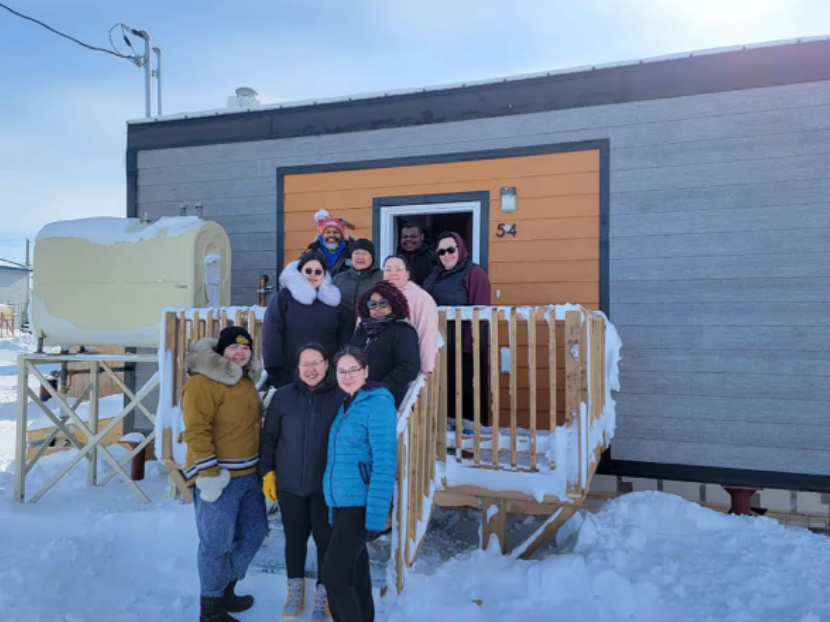Cambridge Bay’s 1st transition home for women set to open soon in Eastern Canadian Arctic

The Kitikmeot Friendship Society announced its latest pilot project — a transitional home for women in Cambridge Bay, Nunavut.
It’s hoped to help women break out of the cycle of domestic violence and homelessness.
Kendall Aknavigak, the president of the Kitikmeot Friendship Society, says the program is meant to be a stepping stone for vulnerable women to obtain their own home.
“We are in such need of housing in Nunavut and in Kitikmeot,” Aknavigak said.
“A lot of women in our communities are facing a lot of homelessness issues. And this is very detrimental to them … they can start to be abused, be neglected, be mistreated.”
She said a community member who had the idea of transitional housing approached the organization. Work began on it last August, and by December, they were approved for funding from partners, including the federal and territorial governments, Nunavut Tunngavik Incorporated, and CHOU Consulting and Development Inc.
The home will have room for three women who are transitioning out of the shelter and who will be able to stay there for approximately two years. The Arnat Qimavik Women’s Shelter has room for approximately four people right now, Aknavigak said.
‘A safe space’
Women who are going into transitional housing will also learn life skills while there, like personal budgeting, learning how to pay rent, cooking, meal prepping and cleaning.
“We’re giving them that sense of opportunity in the community and providing them a safe space,” Aknavigak said.
Charles Zikalala, the society’s director of operations, calls the transitional home “extremely vital.”
He said because the current women’s shelter can only offer safety for up to six weeks, women end up being discharged and return to a place of violence or homelessness.
“Which doesn’t really help,” he said. “Most times they’ll be released back into the same condition that they came from. And then in a matter of days, we get another call to re-admit them into the women’s shelter.”
He said there’s many women in the community who face homelessness and end up couch surfing, leaving them in vulnerable, and potentially dangerous, situations.

“Someone may take advantage of them … we’ve had women that may have to sell their body to be able to have a place to stay for the night,” Zikalala said.
“Nobody has to go through these issues. We have to find alternative ways of supporting communities.”
Zikalala said it’s hoped the pilot program can help address the deeper community issues at play, while also offering women who are in the program something key: hope that they may be able to buy their own house one day, or to obtain permanent housing from the government’s public housing program.
“By establishing this transitional house, we can really work with our clients and just help them to see that not all is lost, that there is still hope,” Zikalala said.
The society’s long-term vision is to establish larger transitional homes for women and for men. Zikalala said they plan to lobby for more funding so they can start similar pilot projects in other Kitikmeot communities as well.
The organization is now working on hiring a program coordinator before officially opening the transitional home. The coordinator will help determine which women’s shelter clients will be admitted into the transitional home program.
Related stories from around the North:
Canada: International Women’s Day time to recognize contributions at the community level, says Pauktuutit, Eye on the Arctic
Finland: Swedish-speaking Finnish women launch their own #metoo campaign, Yle News
United States: Craft space aims to teach Alaska Indigenous women skills — and help beat addiction, Alaska Public Media



